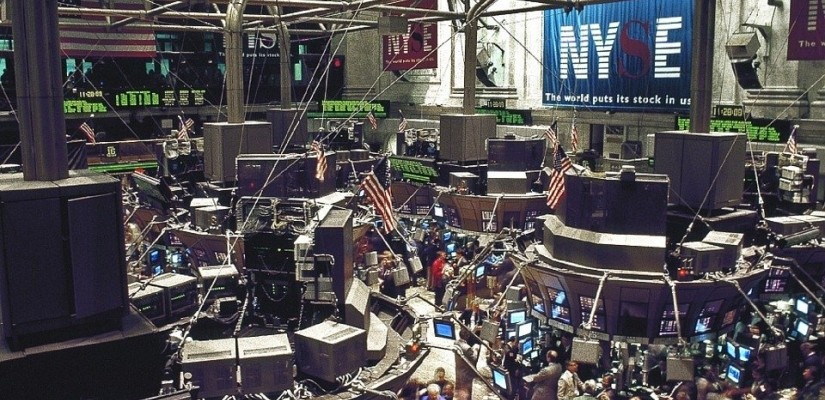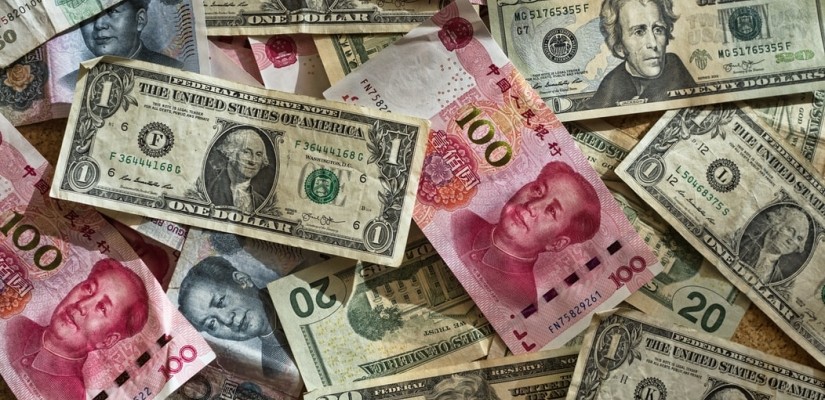A recession is defined as a period of declining economic activity, typically measured by two consecutive quarters of economic decline, as reflected by a country’s GDP in combination with other key indicators. Since the industrial revolution, the long-term macroeconomic trend in most countries has been economic growth, but occasionally in between these periods of growth come short periods of economic slowdown, known as recessions. The world economy has been experiencing a period of growth over the last few years. This growth was especially challenged in 2019 and seems unsustainable in 2020 as geopolitical disputes, changes in the international system, slowing levels of production, increasing global debt, and falling commodity prices impact economies around the world. The IMF has predicted sluggish economic growth for 2020, putting various countries on the radar for looming recessions. While the overall economic outlook now seems more positive than it did earlier in 2019, the possibility of a global economic downturn is imminent and will have fundamental ramifications for businesses, governments, and individuals alike.
To begin with, experts predicted that the US economy would experience a recession in 2020, as fears were sparked by the inverted yield curve in late 2018 and 2019, which has previously been correlated with recessions. Indeed, certain areas of the US economy did struggle economically in 2019, largely as a result of political volatility and uncertainty brought on by the Trump administration’s policies, especially the US-China trade war. In addition to creating immense uncertainty for markets, the trade war has already caused declines in real exports, imports, and GDP. The trade war could put an average tariff of 6% on American imports - the highest this century, which will force firms and their supply chains to make disruptive adjustments, eventually causing spillover effects into the economy. The specific impact can be seen on declining business confidence, financial stress, declining equity prices, a manufacturing slump, and tepid investment. Nonetheless, as progress is being made between the two countries on resolving the trade dispute, predictions for a US recession have tapered off as economic indicators remain mostly positive, despite slowing manufacturing and industrial production. Signs of a resolution for the US-China trade war will help encourage corporate confidence, and consumer confidence remains high thanks to a healthy job market and low inflation levels. Although the Federal Reserve has adopted a strategy of cutting interest rates in order to promote growth and attract more investment, it is unlikely that rates will be cut any further; as of December 16, 2019, the federal fund rate is 1.75%. Therefore, we are likely to see a shift from monetary to fiscal policy not just in the US, but all over the world.

The repercussions of the US-China trade dispute will continue to be felt on a global scale: world trade amongst countries will decline under a protectionist environment as countries turn inward, spurring worldwide pessimism in investing. The trade war is also affecting China, and while the country is not nearing a recession, its economy continues to slow with a forecasted growth of under 6% in 2020, the slowest since its first quarter in 1992. Beijing continues monetary easing but is increasingly turning to fiscal policy through tax-cuts and investing in infrastructure spending to stabilize the economy. Another area of economic and financial risk in the Asian region is Hong Kong. The financial hub has seen months of social and political unrest led by protests that have damaged the economy, sending it into a technical recession, its GDP contracting by 3.2% in the third quarter and 2.9% for the end of 2019, with industries like tourism being hit especially hard. Hong Kong’s dependence on its key sectors of financial services, tourism, and export trading makes the region more susceptible to further economic damage should political volatility continue in 2020.

Potential for Economic Revival in Europe
The European Central Bank (ECB) has followed the same approach as the Federal Reserve for fiscal stimulus. The ECB has recommenced quantitative easing and has kept interest rates negative. As we have seen before, this is not a strategy that can be maintained in perpetuity, and the new head of the ECB, Christine Lagarde, may need to implement further economic stimulus through fiscal policy. The EU’s largest economy, Germany, is teetering on the edge of a recession as it continues to grapple with a decline in its manufacturing sector. Given Germany’s status, its economic woes could negatively impact the rest of the EU. Italy, the EU’s fourth-largest economy, was in a technical recession for the second half of 2018 and has faced ongoing economic problems as weak productivity, high unemployment, large levels of debt, and political uncertainty persist. Moreover, uncertainty regarding Brexit has spilled over not only into the European economy but to the international community. The UK continues to experience stagnation as investors remain wary, weak productivity persists, and Britain’s future trade relations with the EU remain unclear. For the time being, the uncertainty regarding Brexit has left a significant negative impact on economies globally, as business and consumer confidence declines amidst the prospect of regulatory changes, limited trade access, and less labor mobility. Risks remain in the region, but there is an overall positive outlook that in 2020 a recession could well be avoidable as Brexit and its implications become more settled, monetary policy fostering growth continues, and global trade improves.
Role of Emerging Markets in the Global Economy
Emerging markets have a fundamental role to play in the world economy, and their growth is imperative in determining the development of the global economy. Despite this, volatility in places like Latin America and the Middle East marked by political uncertainty, mass demonstrations, social upheaval, intense poverty, and enormous debts results in a bleak global outlook for 2020.
